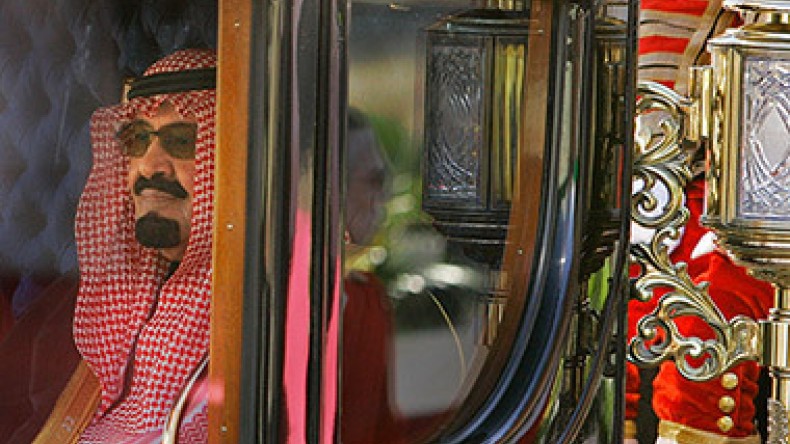
Saudi Arabia foreign policy: ‘Enacted not by Abdullah, but by oligarch consensus’
Wahhabi extremism is a direct outcome of the foreign policy that the oligarch consensus in Saudi Arabia has pursued for decades, thus there won’t be any substantive policy changes, geopolitical analyst Eric Draitser, told RT.
RT: What legacy is King Abdullah leaving behind?
Eric Draitser: There are a number of things we should consider. I think the most obvious is the five hundred pound gorilla in the room, the exporting of Wahhabi extremism, the continued export from Saudi Arabia of precisely the kind of extremism that has been fought in Syria that has been fought in Iraq and all throughout the region. This specter, this global threat of Wahhabi extremism emanating from Saudi Arabia a direct outgrowth of the foreign policy that Saudi Arabia has pursued going on for decades. And it’s certainly not all at the feet of one individual, but rather I think it could be described more specifically as an oligarchy, a familiar oligarchy, but an oligarchy nonetheless. And I think that is probably the principle reason why the report there is correct in saying that there won’t be substantive policy changes because those policies were not simply enacted by Abdullah; those are enacted by an oligarch consensus in Saudi Arabia.
RT: What about the new King, former Crown Prince Salman. Do you see a smooth transition of power?
ED: There could be a smooth transition of power in the sense that he seems like some kind of a caretaker, in the sense that he doesn’t seem like he is going to be prepared to actually take the reins of the state, to represent the state internationally or anything like that. If some of the reports are true I think we could ask a very obvious question of whether he is even competent enough to run this state. But again this transition I think is really secondary because it’s the seamless continuity of the policy, that we should be most concerned with. I think right now internationally people are most aware, most conscious of this question of global oil prices and oil production and oil output - this will not change this policy, this use of OPEC as a lever of Western foreign policy, this will continue. However I do think this question of what non-OPEC countries might do now is going to be very much on the table. How will Russia and Venezuela and some of these other countries seize on this moment, or will they seize on this moment to transform how the global oil markets work. I think that’s a very interesting question.
RT: Saudi Arabia has long been criticized for human rights violations. Are you expecting any changes in this respect?
ED: No, of course not. I mean we are talking about one of the most repressive regimes in the world; we are talking about something akin to feudal monarchy, one of the places in the world where slavery is still very much prevalent. I mean all of these very backwards notions that are really institutionalized in Saudi Arabia…especially in the Qatif provinces of Saudi Arabia with a Shiite minority - all of this oppression, all of these forms of domestic repressions will continue. The foreign policy will remain the same and sadly the problems that are plaguing the region, many of which emanate from Saudi Arabia and the other Gulf monarchies, this will remain unchanged and the conflict will continue.
RT: All eyes are on oil prices right now of course. And crude prices are already going up. How will the death of King Abdullah affect oil prices, with oil being such an important commodity for Saudi Arabia?
ED: Saudi Arabia should be understood as essentially a client state of the United States. And so that client status is not dependent on an individual ruler, that client status is still very much intact, and again for Saudi Arabia to be shooting itself in the foot with this global oil price question, continuing the output at these levels draining their own economy just for the purposes of being able to be used as a weapon by the United States against Russia. I think that this illustrates quite clearly the degree to which Saudi Arabia is still within the orbit of the United States and that’s not changing either.
Newsfeed
Videos






























